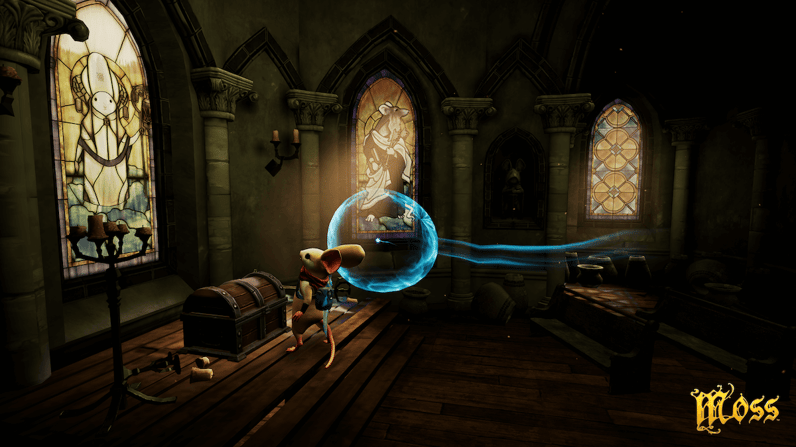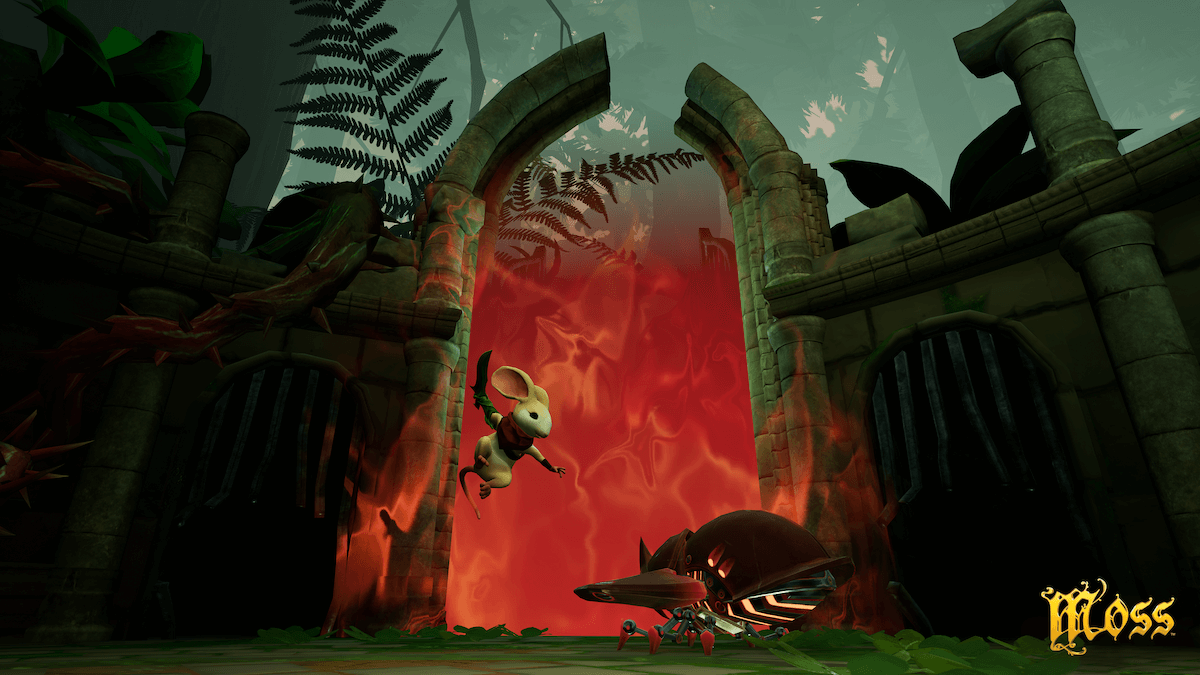How a prominent VR game company is creating a more equitable hiring process.
Polyarc is a thriving video game development studio based in Seattle and specializing in virtual reality. In 2018 they released Moss – a single player action-adventure puzzle game built for virtual reality in a first-of-its-kind fully immersive environment – and since then they've been busily making progress on the next big project.
The company was formed not only to build groundbreaking player experiences, but also to champion a culture where deep collaboration, creative expression, and high player value are at the forefront of every innovation.
We asked Polyarc Audio Directors Kristen Quinn and Stephen Hodde to share how they support these values and promote a healthy culture in the hiring process.
Article by Kristen Quinn & Stephen Hodde:
As we entered a period of hiring at Polyarc, we tried to think about ways of reducing systemic, implicit bias in hiring both as a company and as an industry. We recognize that these techniques are, at best, incremental progress toward the goal of fair and equitable hiring practices. There are still significant flaws, but hopefully it’s a bit better than it was before.
The Goal
It’s absolutely worth taking a moment to state the obvious: At Polyarc we attempt to evaluate how a candidate will do at the company both short and long term. We are attempting to create processes that help to avoid implicit bias or testing for skills that have no impact on their job performance.
Noise
In many ways, the interview environment works against one’s ability to accurately assess a candidate’s viability. Some people might not interview well, but that won’t reflect their work performance. There’s nuance here; collaboration and communication skills are important. However, the ability to spontaneously surface profound answers to difficult questions in a stressful situation is not a great predictor of performance as an audio designer and collaborator.
In the instances where we need candidates to use significant critical thinking or self-reflection, we give them time to organize their thoughts. These questions are presented well in advance of the interview. During the interview, we strive to create an environment where they can feel as relaxed as possible and more like themselves.
During some portions of the interview process we deprioritize audio expertise and experience to better evaluate the qualities of the candidate that generate artistry; commitment to excellence and acquiring knowledge, ability to receive and give feedback, and other predictors of long-term success.
"In order to hire more fairly and equitably, we have to increase our skill as interviewers beyond the evaluation of work product."

Signal
During the interview process, we attempt to replicate experiences that reflect our highly collaborative work environment. Often a well-placed suggestion or question can unblock a candidate and open them up to expression that would have otherwise gone unheard.
Part of this collaborative method tests a candidate’s ability to receive and respond to critical feedback, which is crucial for healthy partnerships. This technique provides insight into their potential for growth. Is the candidate curious? Do they love to learn? Are they willing to admit when they are wrong or find value in another’s point of view?
Practically speaking, we present a hypothetical game mechanic and talk through spotting effects, technical considerations, sound source choices, field recording, or whatever else comes up. Here, we can evaluate empathy and identify inherent vision and purpose that will guide a candidate through their career with Polyarc and beyond.
"Our industry is crunching our candidates before they even get through the door."

Testing
We couldn’t find a way to exclude testing, though we’d like this to change. Our industry is collaborative, and so it’s difficult to assess a candidate’s individual contribution through their portfolio. Some people are skilled at this in their portfolio submission, and so it’s possible we remove this in the future in favor of stringent portfolio requirements. Candidates would receive the benefit of that instruction in all subsequent portfolio evaluations.
We tried to establish a minimal test, respectful of time. A test that takes a lot of time is testing for a candidate’s ability to leverage and tolerate non-working time for work. This is bad. Our industry is crunching our candidates before they even get through the door.
Many audio people have their own gear, and have invested significant discretionary income in accumulating a huge library of sounds, microphones, synthesizers, plugins, etc. Any test that allows candidates to use these resources is testing for that economic privilege.
This is why we reached out to Pro Sound Effects. A candidate’s ability to pull compelling content out of a library is absolutely relevant to their everyday work experience, and we wanted to level out the inherent economic factors pervasive in game audio testing. We talked through some of these issues with their Licensing Director, Jeremy Siegel. Soon, it was clear PSE would be a great partner because they share our values of promoting equitable industry practices.
Through our partnership with PSE, we have been able to offer free limited time access to a robust, professional, quality sound library. We also limited our candidates’ job tests to an afternoon of work. We assumed they would have access to a computer and a DAW, but we limited them to stock, free, or plug-ins with trials.
"A candidate’s ability to pull compelling content out of a library is absolutely relevant to their everyday work experience, and we wanted to level out the inherent economic factors pervasive in game audio testing."

Summary
In order to hire more fairly and equitably, we have to increase our skill as interviewers beyond the evaluation of work product. Economic factors and systemic bias skew our perception of a candidate’s viability if we focus on demo reels and expensive tests at the exclusion of other, equally valuable measures of success.
Learn more about how Pro Sound Effects helps game audio teams succeed:
 Kristen Quinn is an Audio Director at Polyarc, formerly Riot, Microsoft, and Monolith.
Kristen Quinn is an Audio Director at Polyarc, formerly Riot, Microsoft, and Monolith.
Follow Kristen: Website | Twitter

Stephen Hodde is an Audio Director at Polyarc, formerly Bungie, Amazon, and Volition.
Follow Stephen: Website | Twitter












